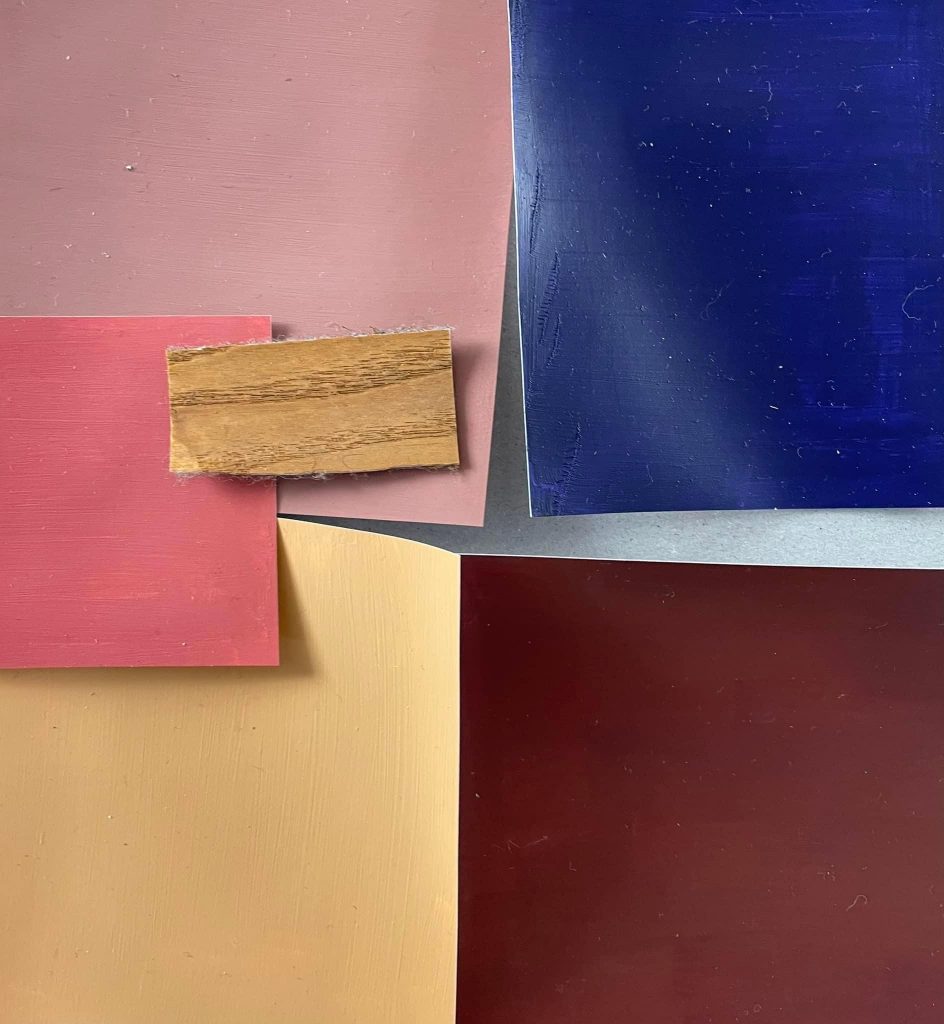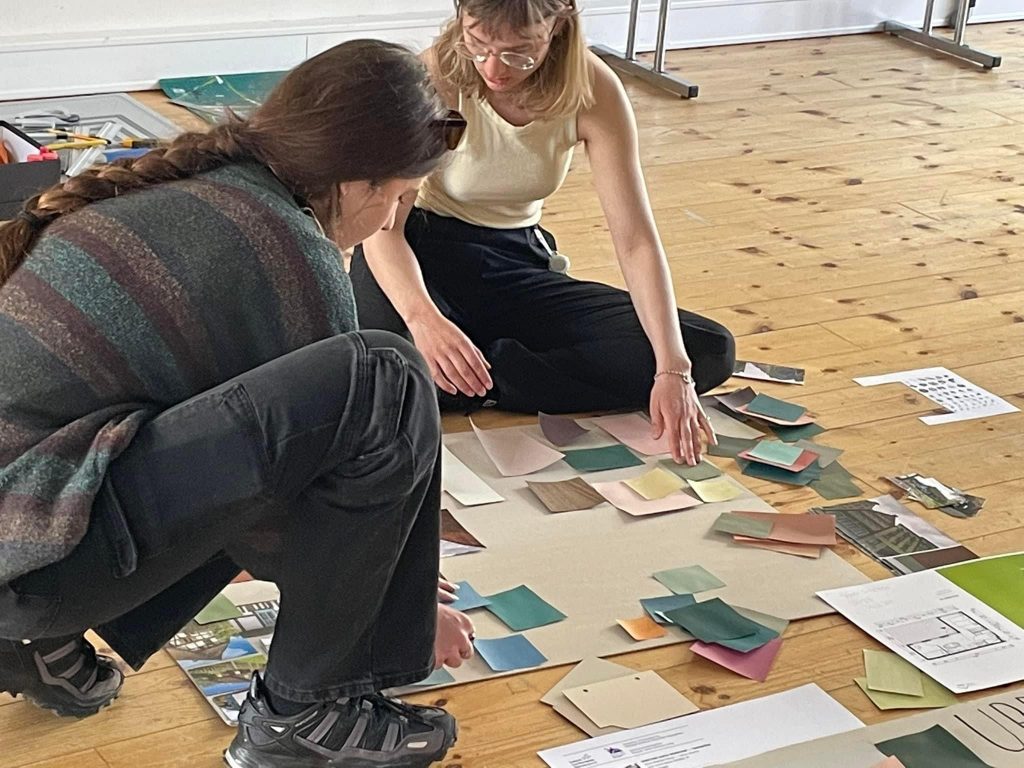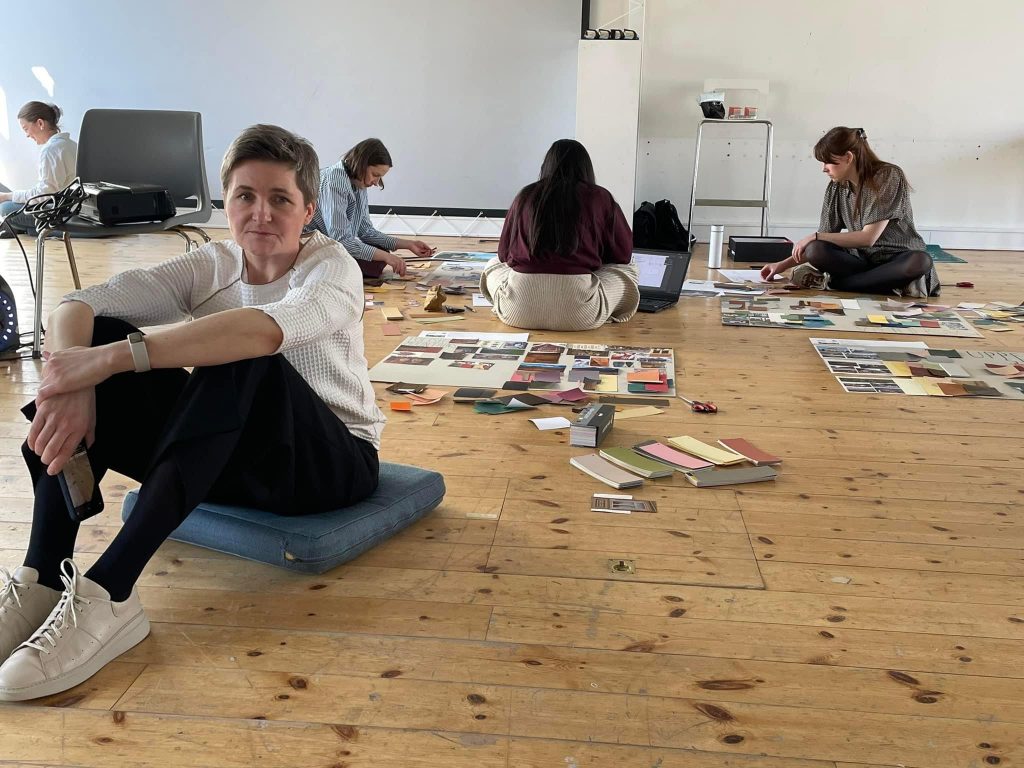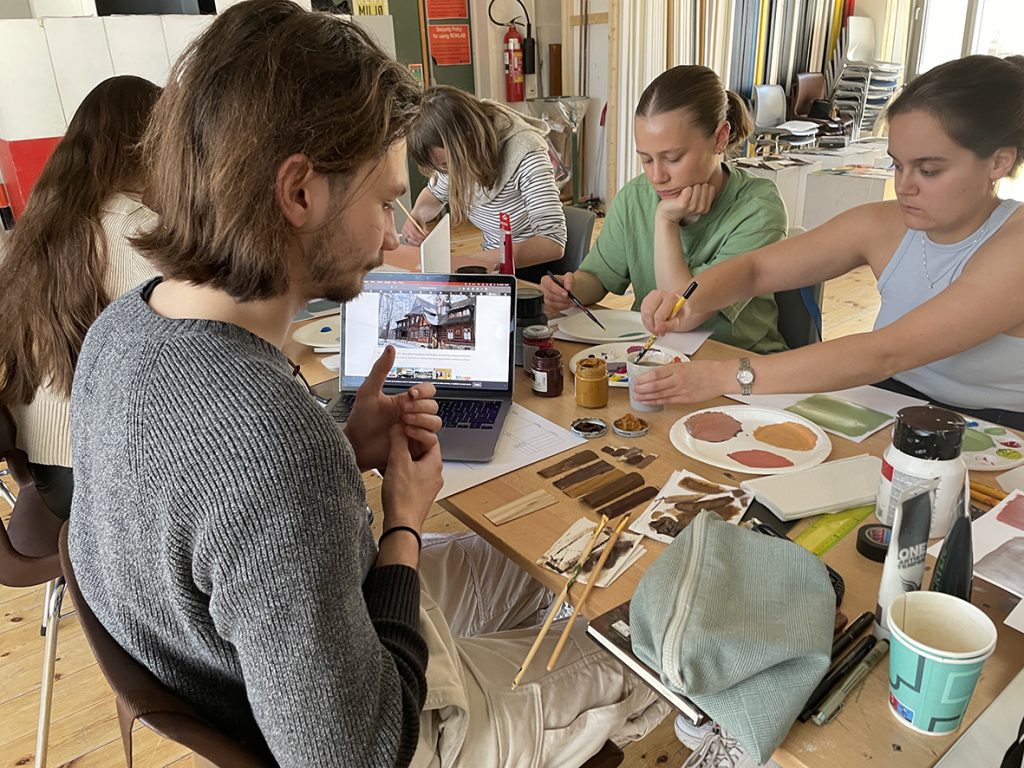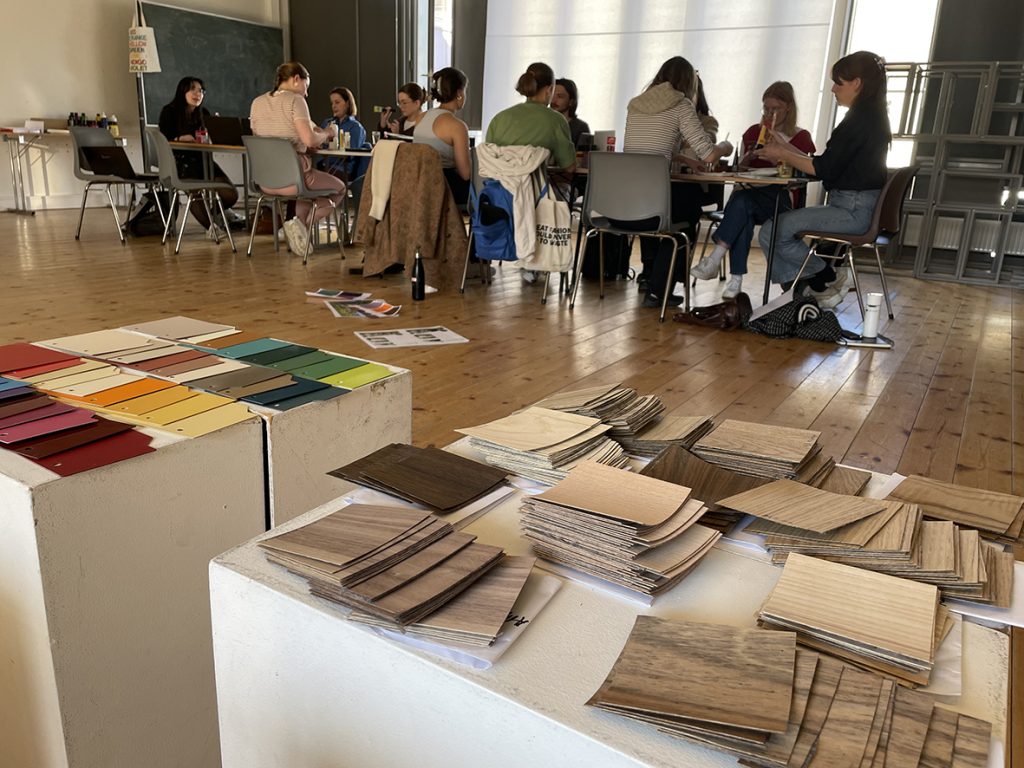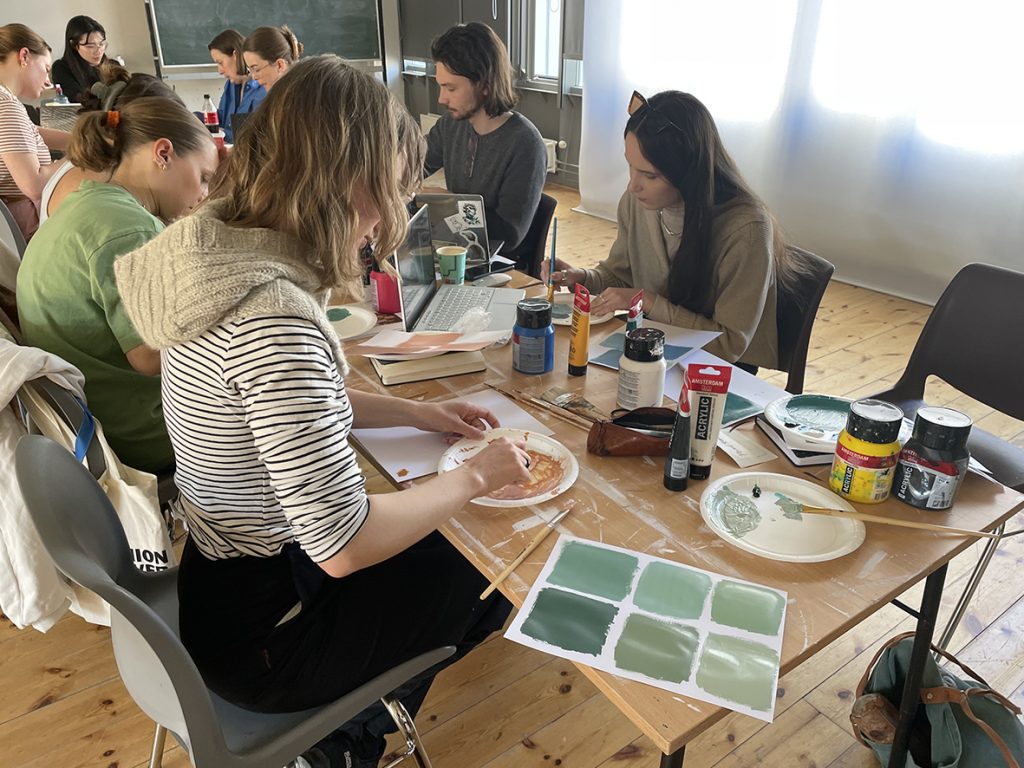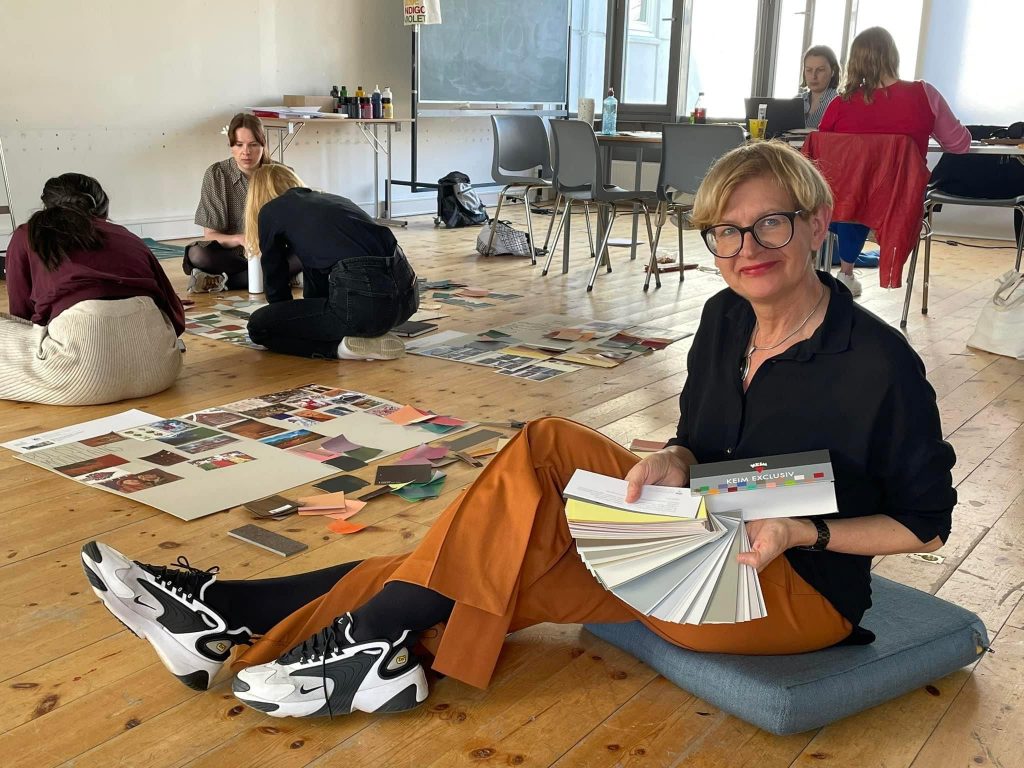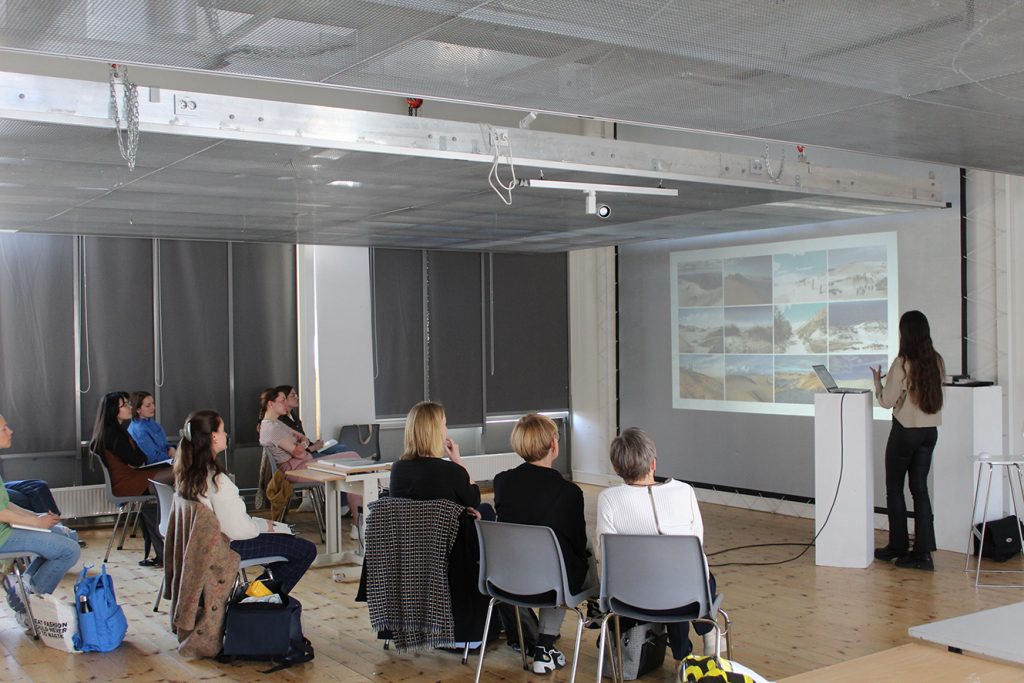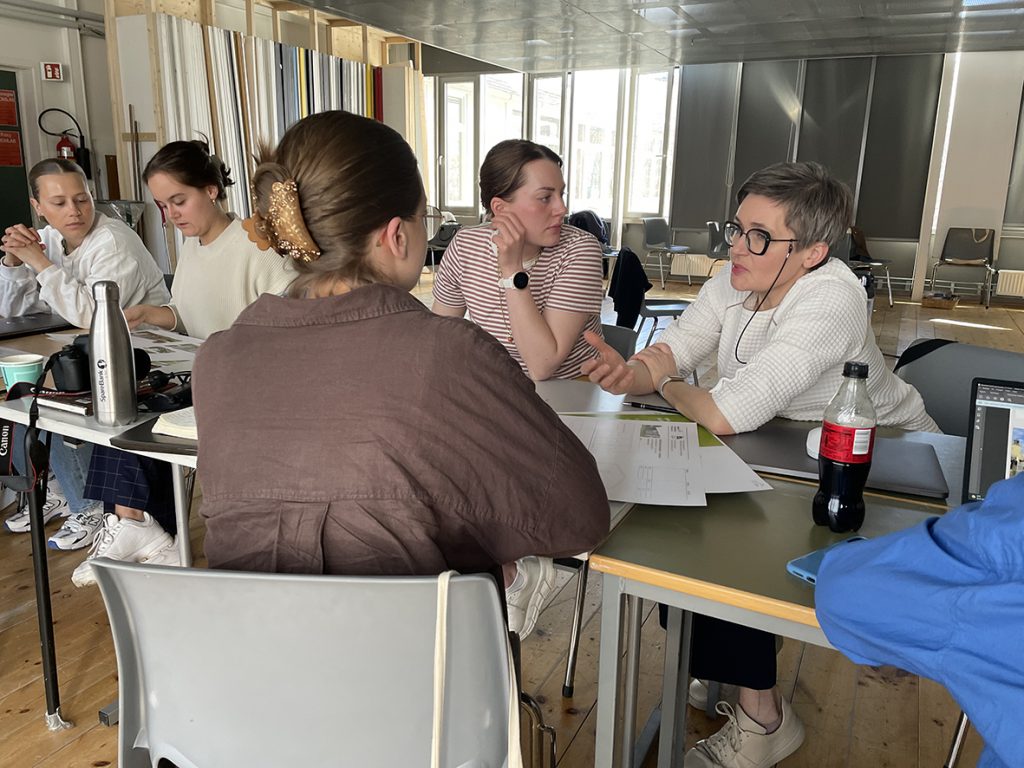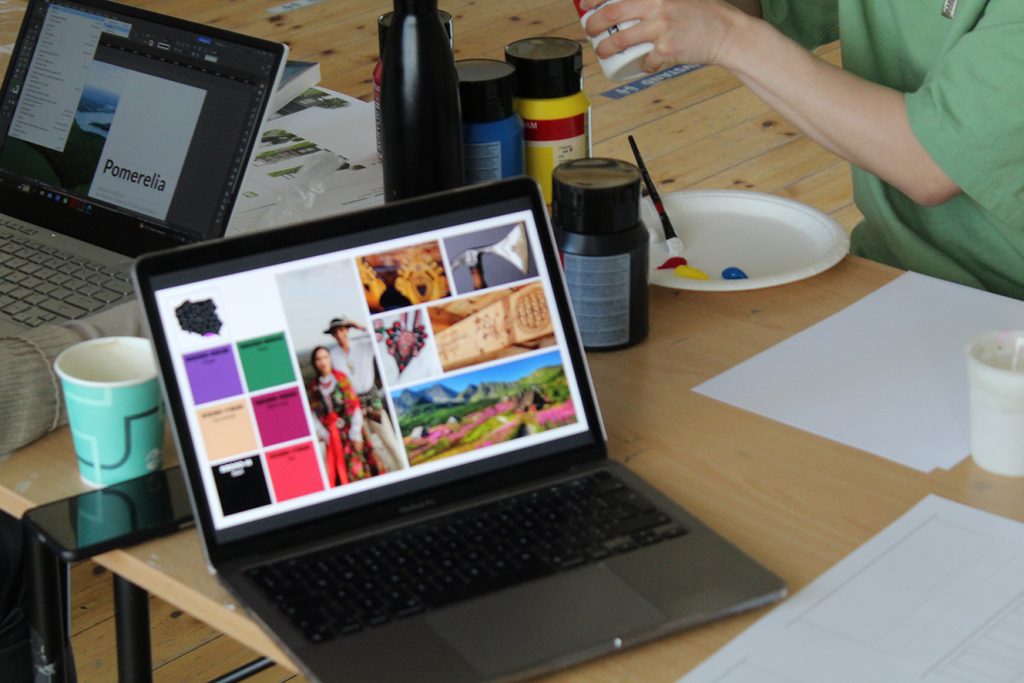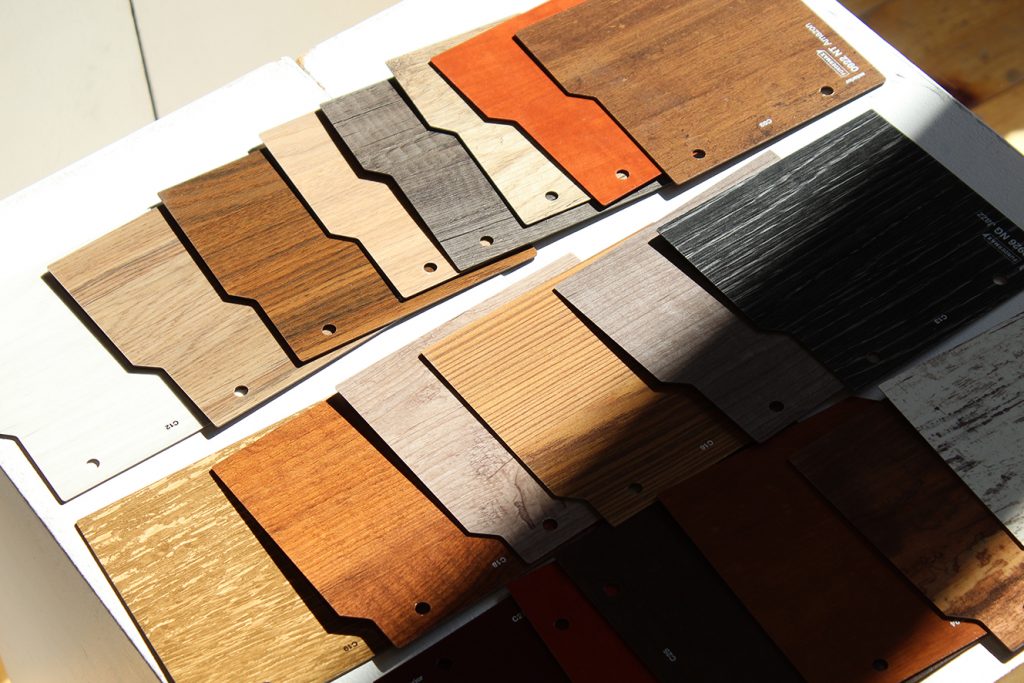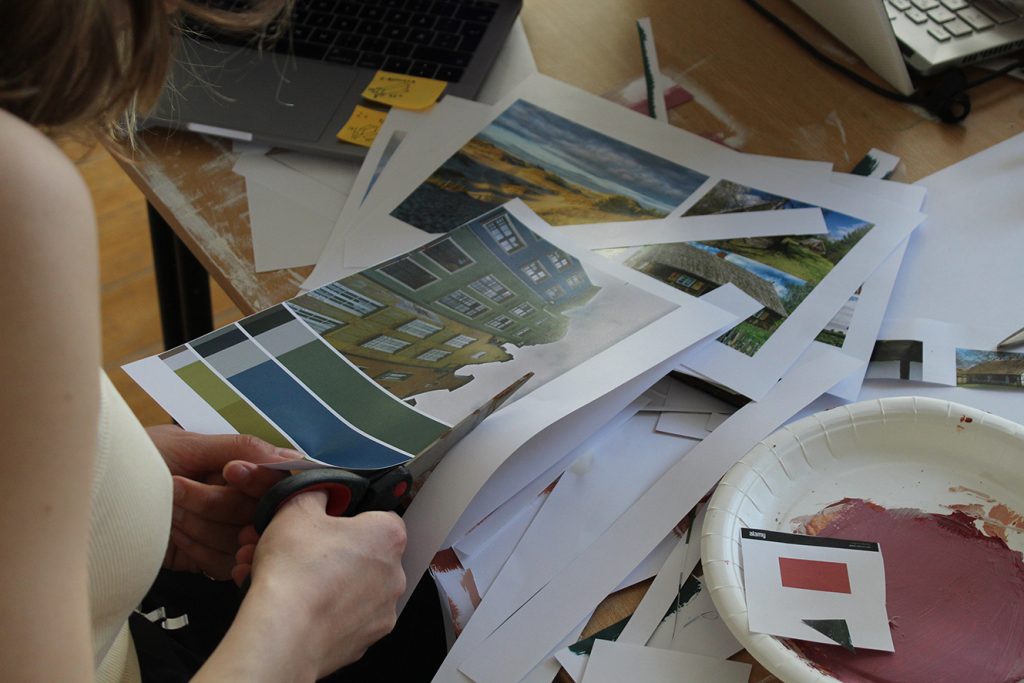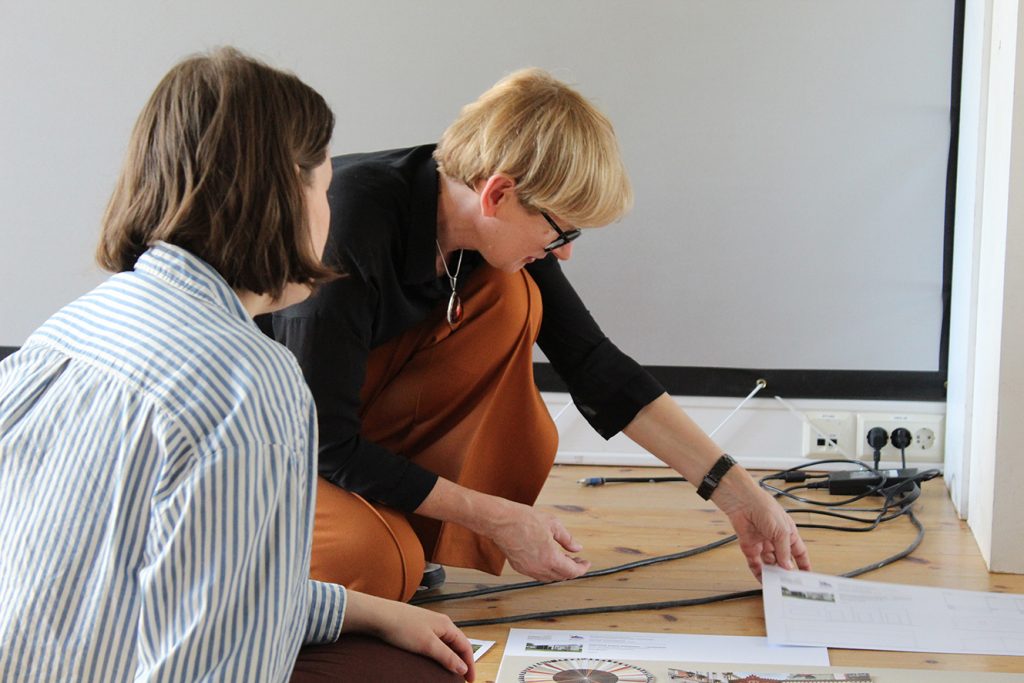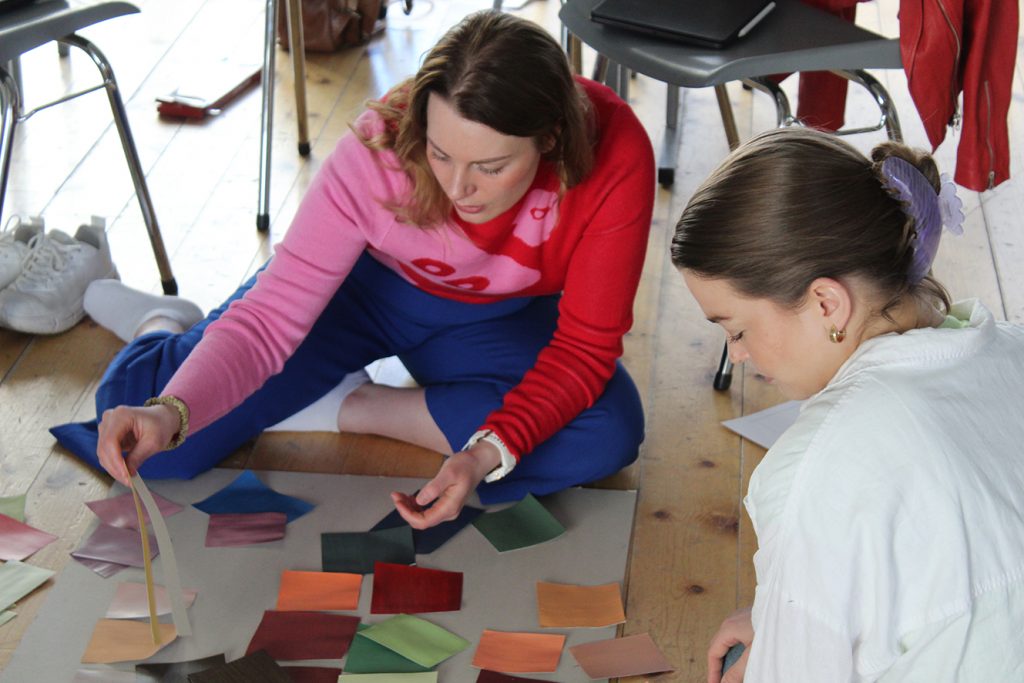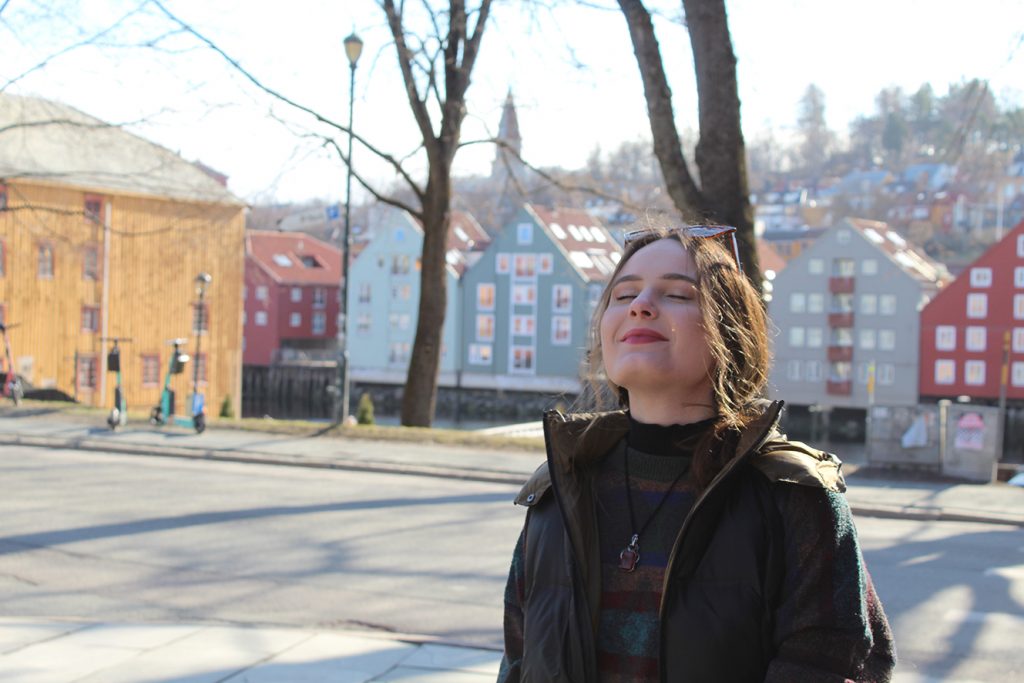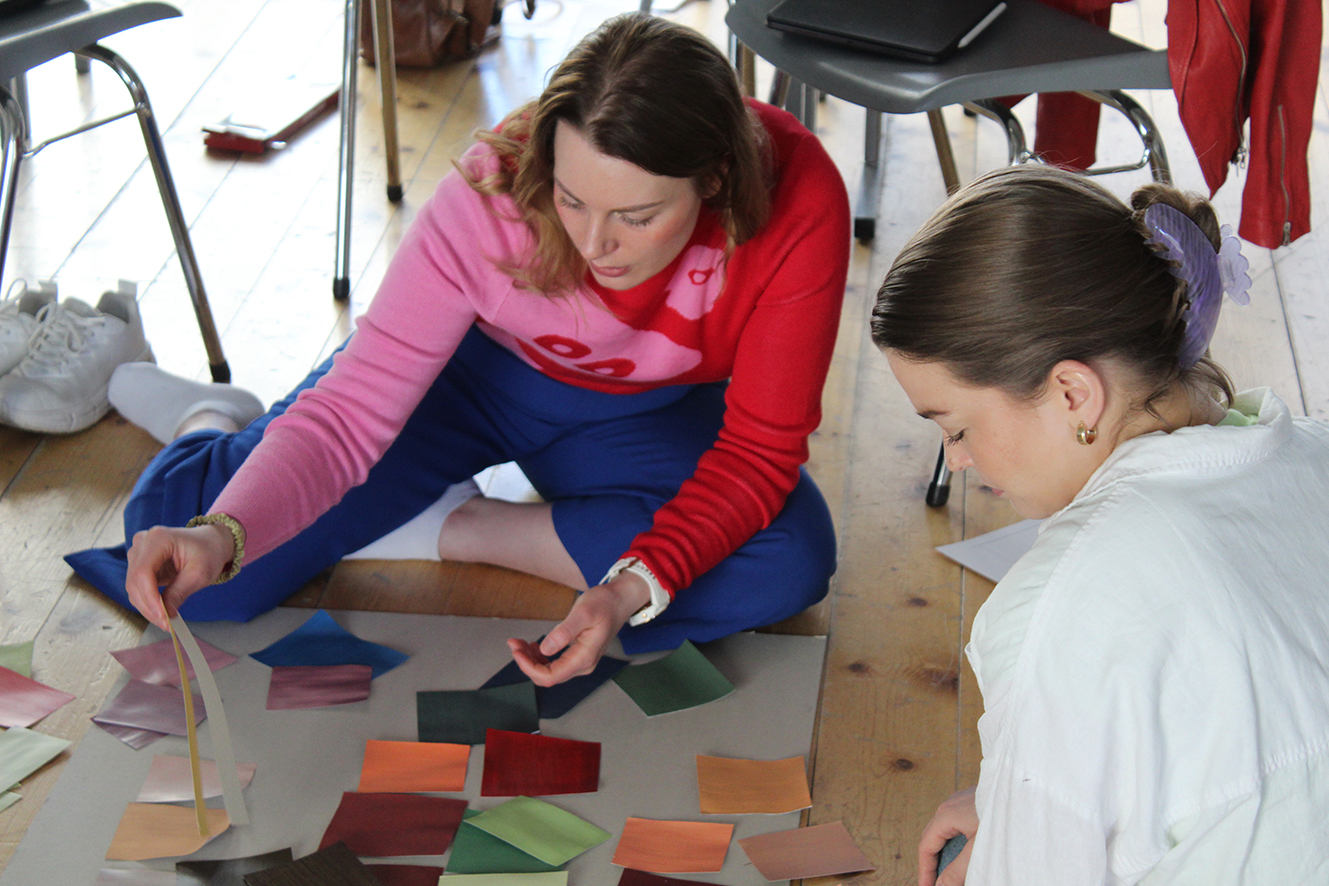Data: 19-20.04.2023, NTNU Trondheim
Geografia koloru. Projekt kolorystyki modułowych mikrodomów.
Termin geografia koloru został zaproponowany przez słynnego francuskiego projektanta-kolorystę Jean-Philippe’a Lenclosa w latach 70. XX wieku. Lenclos sformułował tezę, że kolory architektoniczne powinny wynikać ze specyfiki danego miejsca – tradycyjnych materiałów, barw ziemi, roślinności oraz lokalnych tradycji. Projektant, wraz z zespołem, odwiedzał różne regiony Francji a następnie wiele innych krajów Europy i świata. Z wykorzystaniem opracowanych przez siebie metod, dokonywał zapisu kolorystyki różnych regionów oraz opracowywał plany kolorystyki wybranych zespołów architektonicznych. Jego celem było zachowanie harmonii i równowagi pomiędzy barwami natury a barwami środowiska zurbanizowanego.
W XXI wieku, w następstwie zmian związanych z epoką antropocenu oraz procesem globalizacji, zaburzeniu uległa spójność środowiska geograficznego ze środowiskiem wizualnym tworzonym przez człowieka. Powszechne staje się zjawisko chromofobii (termin wprowadzony przez artystę Dawida Batchelora), skutkujące ograniczeniem palety barw stosowanych w architekturze do bieli, czerni i skali szarości. Warszaty, w których wezmą udział studenci i pedagodzy z Krakowa i Trondheim, mają na celu porównanie palety kolorystycznej obu krajów oraz relacji pomiędzy specyficznym klimatem i krajobrazem a sposobami użycia barwy przez projektantów i architektów.
Studenci zaprojektują kolorystykę elewacji domów modułowych dedykowanych dla wybranych regionów w Polsce i Norwegii, konfrontując ze sobą krajobraz antropocenu w obu krajach.
Prowadzące warsztaty: prof. Agata Kwiatkowska-Lubańska / Kierowniczka Pracowni Wiedzy o Barwie, dr hab. Bożena Groborz / Adjunktka w Pracowni Teksyliów Użytkowych
DZIEŃ 1, 19.04.2023:
10.00 wstęp do warsztatów – prezentacje wprowadzające: Agata Kwiatkowska-Lubańska, Bożena Groborz
11.00 omówienie tematyki warsztatów
11.30-12.00 praca ze studentami
12.00-12.45 przerwa na lunch
12.45-16.00 praca ze studentami
DZIEŃ 2, 20.04.2023:
10.00-12.00 praca ze studentami
12.00-12.45 przerwa na lunch
12.45-15.00 praca ze studentami
15.00-16.00 podsumowanie i omówienie efektów
Date: April 19-20, 2023, NTNU Trondheim
Geography of color – colour schemes for modular micro houses
The term geography of color was introduced by Jean-Philippe Lenclos the famous French designer-colorist in the 1970s. Lenclos formulated the thesis that architectural colors should derive from the peculiarities of a place – traditional materials, colors of the earth, vegetation, and local traditions.
The designer, along with his team, visited various regions of France and then many other countries in Europe and the world. Using the methods he developed, he recorded the color scheme of various regions and developed color plans for selected architectural complexes. His goal was to maintain
harmony and balance between the colors of nature and the colors of the urban environment.
In the 21st century, following the changes associated with the Anthropocene era and the process of globalization, the coherence of geographic environments with the visual environment created by man has been disrupted. The phenomenon of chromophobia (a term introduced by artist David Batchelor) is becoming common, resulting in the reduction of the color palette used in architecture to white, black, and grayscale. The workshop, which will be attended by students and educators from Krakow and Trondheim, aims to compare the two countries’ color palettes and the relationship between the specific climate and landscape, and the ways in which designers and architects use color.
The students will design colors for the facades of modular houses dedicated to selected regions in Poland and Norway, confronting the Anthropocene landscape in both countries.
Workshop leaders: Agata Kwiatkowska-Lubańska / Director of the Department of Space and Colour Studies, Bożena Groborz / adjunct in Applied Textiles Design Studio
DAY 1, 19.04.2023:
10.00 introduction to the workshop – introductory presentations: Agata Kwiatkowska-Lubańska, Bożena Groborz
11.00 Discussing the topic of the workshop
11.30-12.00 Work with students
12.00-12.45 lunch break
12.45-16.00 Work with students
DAY 2, 20.04.2023:
10.00-12.00 Work with students
12.00-12.45 lunch break
12.45-15.00 Work with students
15.00-16.00 Summary and discussion of the effects
